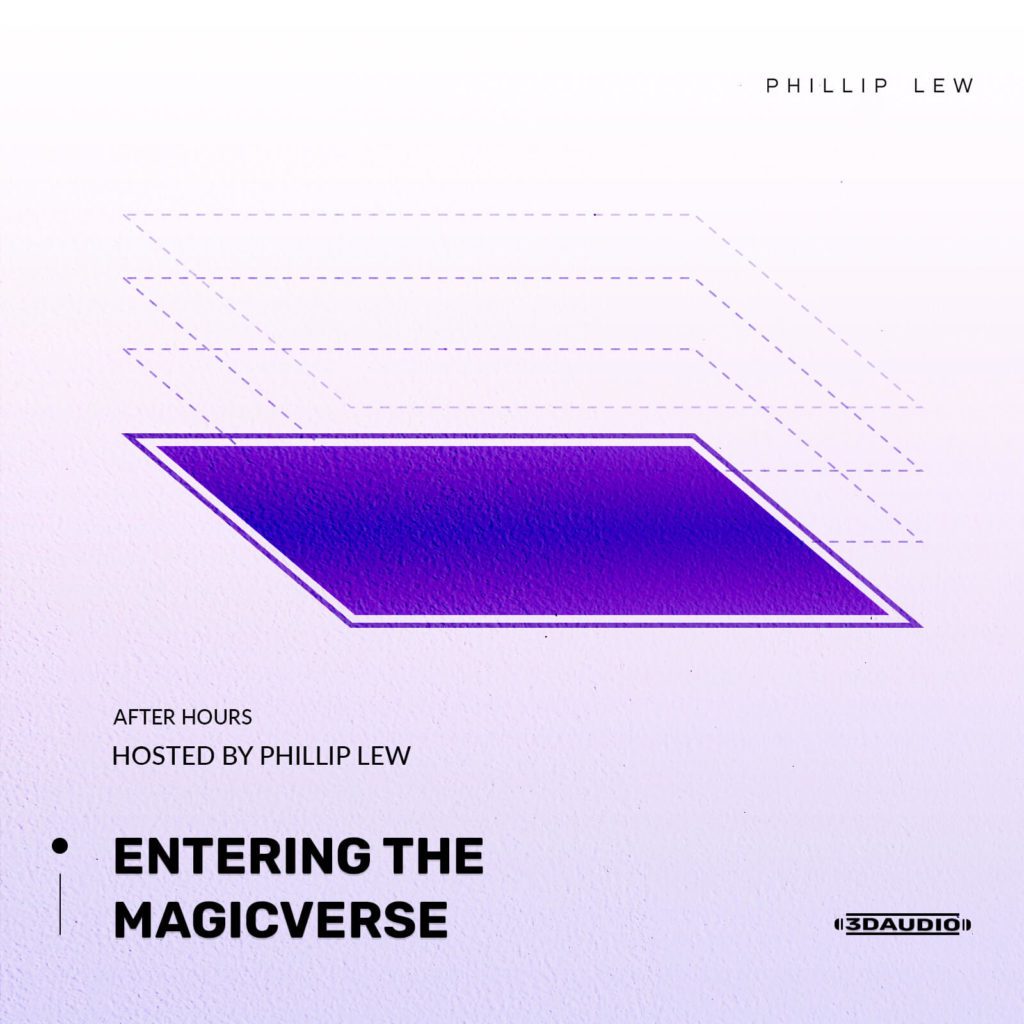
00:00
Paused.
Book Phillip to speak at your next event!
Entering the Magicverse
PHILLIP
While reading the news, he receives a notification from his daughter, who wants to show him her finished report on Mount Everest. He clicks on the icon notification, and a new screen emerges that shows him a vivid rendering of his daughter’s project with color, sound, and interactive detail.
Just 20 miles south, meet Susan. Susan is a college professor. For her lecture on marine biology, her students are learning about how whales use a special form of sonar-like communication to sense danger and locate other marine life in their environment. To illustrate, all the students put on their AR headsets and see a big, beautiful whale swim above their eyes surrounded by a crystal clear blue, ocean-like environment. It’s here that the students can hear firsthand the clicks, whistles, and pulsating sounds of an Orca whale.
Susan, at different times during her lecture, will pause the holographic Orca animation and explain the various anatomy and physiology of the whale, and allow her students to ask questions and learn by interacting with the animation.
Across the street from Susan’s University, meet Thomas. Thomas is a back surgeon who is about to perform a procedure on his patient. Thomas utilizes his AR headset to overlay images, CT scans, with the position of his patient’s bones and key blood vessels allowing him to see through his patient’s limbs during surgery, allowing for a more precise and accurate procedure. Displayed on Thomas’s screen shows his patient’s heart rates, temperature, and other life signs, and through his cloud-based AI system, he’s provided real-time recommendations and suggestions to ensure the patient’s safety and well-being.
Welcome to the Magicverse, a fascinating and paradigm-shifting prediction of what our future is transforming into as a result of the converging technologies of AR, VR, IoT, AI, 5G, and many more. The term Magicverse was coined by Rony Abovitz, the CEO of a company called Magic Leap, one of the most secretive and well-funded AR startups in the world. According to Rony, the Magicverse is, “An emergent system of systems bridging the physical with the digital, in a large scale, persistent manner within a community of people. It is a dynamic, alive, and a home for the endless creative expressions of human life.”
One of the inspirations for Magic Leap’s vision of a Magicverse was Walt Disney’s experimental prototype community of Tomorrow, an unfinished theme park concept that is, in the words of Walt Disney himself, “Gives you an opportunity to participate in the adventures that are a living blue print of our future.” So, what does that actually mean? And why is the work that Magic Leap and other AR companies are doing is so important in helping transform humanity into a more abundant and prosperous place? To begin our exploration into this exciting subject, I think it’s important to start by sharing some bittersweet statistics about the state of our planet, our communities, and the overall distribution of wealth here on earth.
The top 1% of the wealthiest people on earth control over 50% of the world’s resources. To put that in perspective, the richest 26 people on earth control the same financial resources as the bottom 3.8 billion poorer citizens of earth, all combined. Over 3 billion people, almost 50% of the world’s entire population, lives on less than $2.50 a day. Over 265 million children in 2018 alone were not able to go to school due to a lack of resources, teachers, and infrastructure.
Every day, 10,000 people die due to a lack of access to health care, and health services. Children without teachers, clinics without doctors, the cost of human inequality is devastating, and yet, I believe, is completely changeable. And mixed reality, or what we call augmented reality, has the ability to play a large role in moving humanity from a place of panic to power.
Now, to make things clear, augmented reality is made possible by a new form of technology called spatial computing. What is spatial computing? In simple terms, it’s the liberation of computers from the old paradigm of keyboards, and mouses, and computer screens. It’s allowing our everyday computers to render applications, videos, sounds, images, text, onto the canvas of our 3-dimensional world. It’s the ability for our computers to make what was once 2D now 3D. To create digital versions of everyday objects, such as cell phones, TV screens, paintings, movies, anything that your heart can imagine.
Now, according to Rony, there are seven tenets for spatial computing, which we’re going to cover briefly. The first is called persistence. This means if our computers have the ability to create digital versions of a family portrait that hangs on our walls, for example, that this digital portrait would persist and stay present in our home for literally infinite periods of time. We could be looking at the physical world and see one thing, but once we put on our AR headsets, we would be transformed into an entirely new digital landscape. This requires, not only fast computers, but also high speed, 5G internet connectivity. And the global race is on to raise nearly $300 billion that’s needed for the United States alone to become 5G ready.
The next is called awareness, that is, spatial computing combined with IoT smart devices in deep learning will allow future digital objects to sense or become aware of ours states, our emotions, and our desires. As these devices, which are connected to the cloud, will be able to respond in real time and provide us information, products, and services. Likewise, awareness also means that we’ll be aware of these smart devices around us, allowing us to tailor our digital world to our preferences, allowing individuality and creativity to become unlocked from the realms of our imaginations, and expressed onto the canvas of our physical reality.
The third tenet is what we call scale, and I personally find this to be both astonishing and breathtaking. As illustrated with our story of Susan and the Orca whale, scale means that the digital objects that were once constrained to the sizes of our computer monitors and mobile devices can now be enlarged. To use the words of Einstein, “To encircle the world.” Imagine the ability with just your fingers to enlarge a movie screen to be the size of an IMAX cinematic experience, or to digitally place furniture from an online store inside your home to get a sense of size, color, texture, style, and vivid detail before you complete your checkout.
The fourth is what we call interactivity. This tenet is about the expansion of how humans will be able to communicate with and receive information back from our computers. Where interactivity with our machines is currently restricted to primarily our keyboards and mouses, with spatial computing, computers will be able to read our body language, pupil dilation, facial expression, breathing rhythms, and more, to accurately understand our thoughts and feelings. Likewise, interactivity will also mean and expanded way of communicating back with our computers.
Emerging technologies like voice conversational interfaces, facial recognition, brain computer interfaces, will allow us to communicate to billions of smart devices, the internet, cloud, and AI systems, so that they can better serve us, enhance our daily lives, and create a more frictionless world around us.
The fifth tenet is what is known as respect. As technologies like AI, AR, smart sensors, become more affordable and available, the risk of use and misuse also increases dramatically. And hence, respect is about understanding that the foundation of these technologies must be driven by deep compassion, and empathy. The AI systems and technologies that power the Magicverse must be coated with compassion and reverence for all life, our environment, and our shared destiny as inhabitants of our world.
I think, perhaps, this is also where decentralized ways of storing and managing information, like blockchain ledgers, could have a profound role eliminating mistrust, conflicts of interest, and centralized control that have historically created unequal distributions of wealth and power in our world.
The sixth tenet is sentience, that is, the emerging reality that AI systems are becoming conscious and alive. Now, what I mean by that is that researchers in the field of AI and deep learning have already been able to create machines that use artificial neural networks to observe their surrounding environments, and teach themselves new skills and capabilities. Machine systems that can develop basic models of what they are and how they are different from the world around them. And as computer systems become more powerful, these AI systems are predicted to exponentially become more aware, intelligent, and connected to our world.
The last tenet is what we call presence. I find this idea uniquely liberating. To use a quote from the famous Dr. Julio Frenk, President of the University of Miami, presence is about, “The power of place to eliminate the friction of distance and bringing people together.” Mixed reality will allow for individuals to become able to project digital versions of themselves anywhere in the world. So, imagine attending a lecture at a university where half the students in attendance in the auditorium are digital holograms of people located all around the world.
Presence is about the elimination of location as a barrier to education, job opportunities, social events, and spending time with our families. So as you can see, technology is quickly transforming our world. And the rate of transformation is accelerating at increasing speeds, just as the ancient Greeks, whom could have never predicted the invention of gunpowder, or the founding fathers of the United States whom could have never predicted the invention of the internet. I suspect that our futures in the decades to come will be for us, just as unpredictable.
We’ll witness the birth of technologies and experiences that, for us, will be just as mesmerizing and potentially frightening as modern computers and the internet would be if the founding fathers of the United States were alive today. And this is why I also believe that this time in history is uniquely special. As technology evolves at ever increasing rates, so must we raise our conscious awareness of our shared destiny, interconnectedness, and the possibilities for advancements when we come together as a global community.
The challenges facing our world are real and urgent, but I believe humanity can meet these challenges and expand into new frontiers of human potential, but only if we can come together as one, and in peace and compassion for each other and our world.
Thanks for listening to this segment of Innovators, where your future is now. You can read the full unedited transcript of this podcast episode on our site at c9digital.com. Thanks for joining me, again, your host, as always, Phillip Lew, as we take you, the listener, on a journey from panic to power.
OTHER PODCAST EPISODES WE THINK YOU’LL LOVE

About Phillip lew
Phillip Lew is the host of Innovators, a podcast audio experience that decodes the mysteries of exponential technology and the coming singularity. Phillip Lew is also the CEO of C9 Staff—the #1 firm specializing in deploying remote staffing teams for clients across 9 core industries.



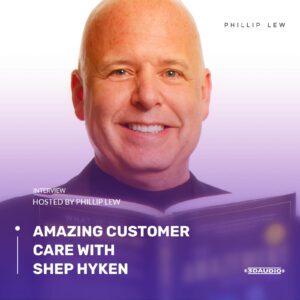


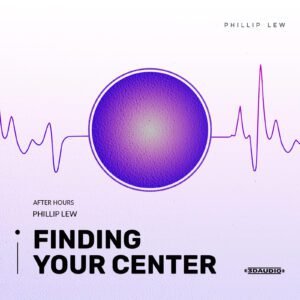



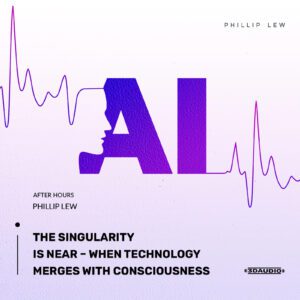
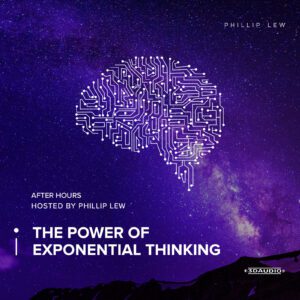





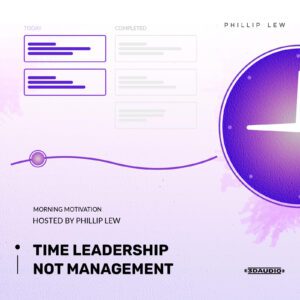
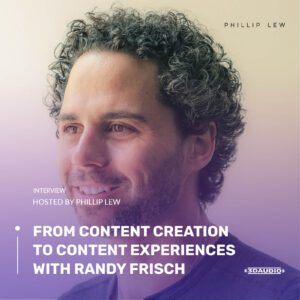

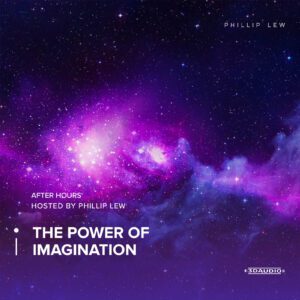
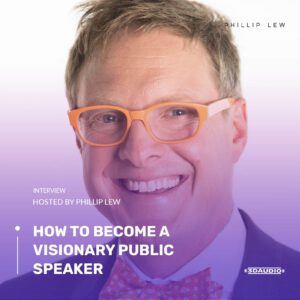
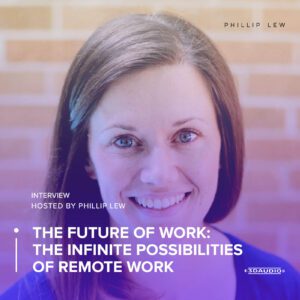
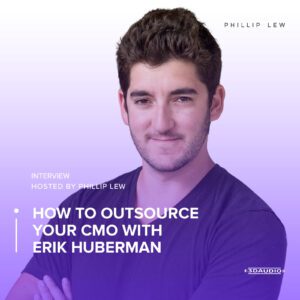
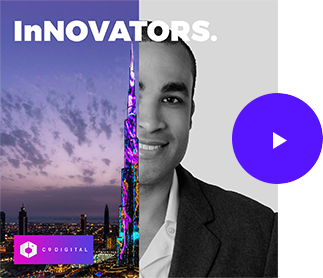
0 Comments